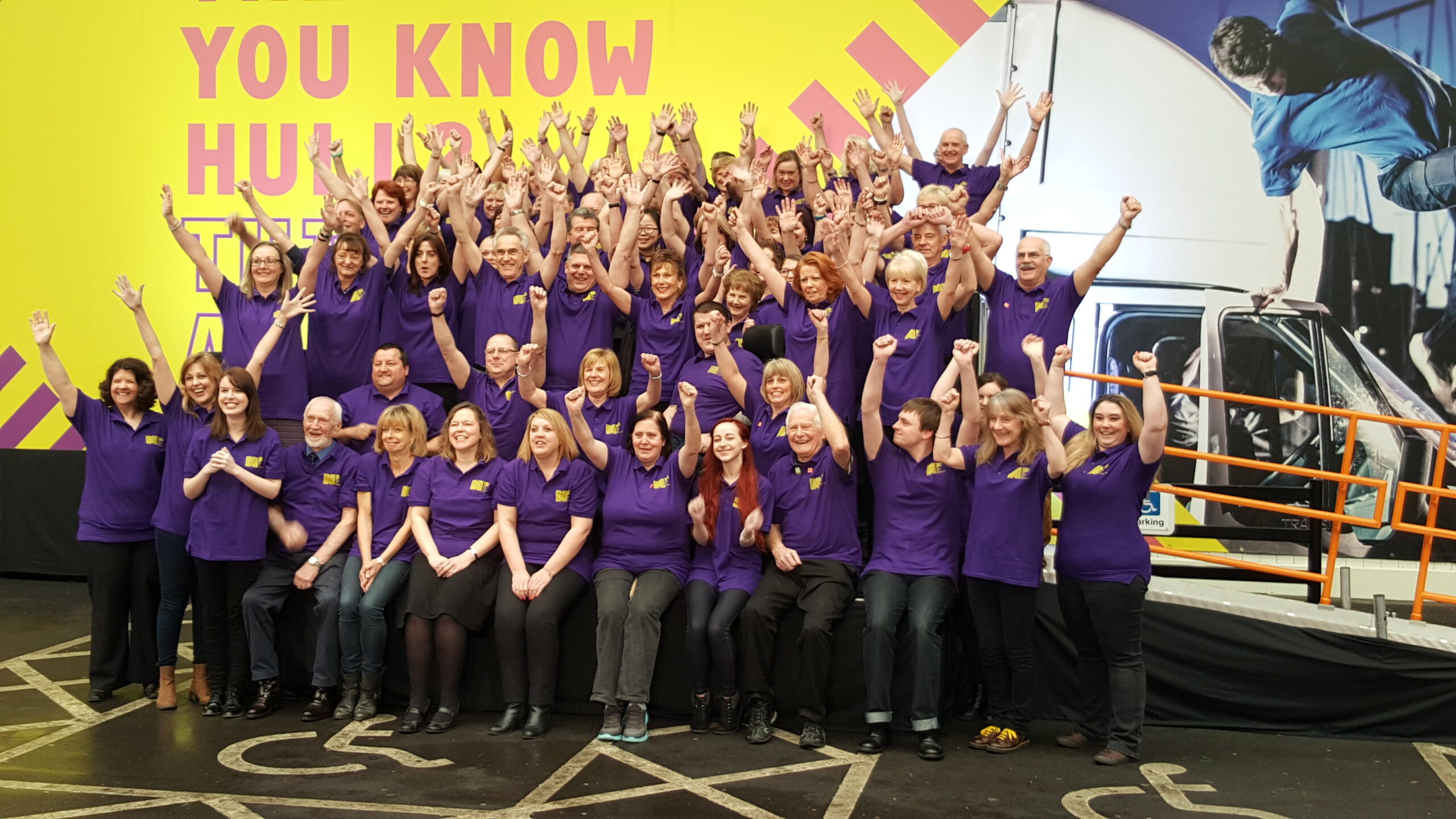Spirit of 2012’s Head of Learning and Impact Amy Finch is proud of the legacy created by Hull 2017’s volunteering programme.

Legacy of Hull

It is widely accepted that Hull 2017’s volunteering programme has been one of its greatest successes. The blue-clad army of volunteers was one of the most visible features of Hull’s year as City of Culture, and its stats are impressive: more than 2,500 participants from all parts of the city undertook hundreds of thousands of hours of volunteering. Delivering a 365-day cultural programme (as well as all those 2016 Curtain Raisers) simply could not have happened without the commitment and enthusiasm of this incredible volunteer workforce.
Our charitable trust, Spirit of 2012, was in part inspired by the Gamesmakers who made such a contribution to the London 2012 Olympic and Paralympic Games. Volunteering and social action is at the heart of our mission as a funder, and what we’ve seen through our £2.85 million contribution to Hull, as well as our support of other volunteering projects across the UK, is that it is only ever the start of the story. The volunteer experience supports people to develop new skills as well as discover – or rediscover – existing aptitudes, and this personal development is central to the multiple legacies created by volunteering programmes such as Hull’s. Everyone from policymakers to project teams to city residents will be looking to its impact and effect as they ask where do we go from here?
Firstly, they will look to the impact of volunteering on personal wellbeing. The common thread in all our conversations with Hull’s volunteers is their enjoyment of the experience – and the powerful knock-on effect this has on their self-confidence. “I actually think becoming a volunteer is the best thing I’ve done so far in my life,” one volunteer told us. “I’m not very confident so I didn’t have the guts to take part initially – now I’ve improved so much,” said another. The programme has helped people realise just how much they have to offer to their community – a huge asset for the city, and one that must be tapped into in the years to come.

Secondly, the volunteering programme has contributed in huge part to the changed reputation Hull now enjoys. The City of Culture programme has profoundly affected how Hull residents think about their city – and how they perceive it is viewed by others. Whilst many residents have long been proud to say they’re from Hull, there was a sense that this was a defensive pride, an attitude adopted in defiance of the city’s negative reputation among outsiders. No more. At our Spirit Summit in October, one volunteer perfectly encapsulated this change: “People in Hull used to look at the ground – now they look at the sky.” The skilled and enthusiastic volunteer team have changed their own perceptions of their city and, crucially, have played a key role in changing that perception in others.
Passing the baton
The spotlight has now turned to Coventry, and we know that they will be eager to learn lessons from the Hull team. But it’s not only cities of culture that can learn from Hull. At Spirit of 2012, we fund a range of volunteering programmes across sports, arts and community development – and there has been a real appetite from these grantees to seek out Hull’s newfound wisdom in this area.
We have been delighted by the generosity of Hull’s volunteers, volunteer managers and the executive team who have all taken an active role in passing on top tips through blogs, podcasts, one-to-one conversations and attendance at Spirit Learning events (head to our Learning Portal to find out more). As the team finally have a moment to draw breath and take stock of the achievements of 2017, we look forward to identifying how the insight we’ve gained can be used to enhance our understanding of volunteering – and to create more legacies in the future.
More Information
